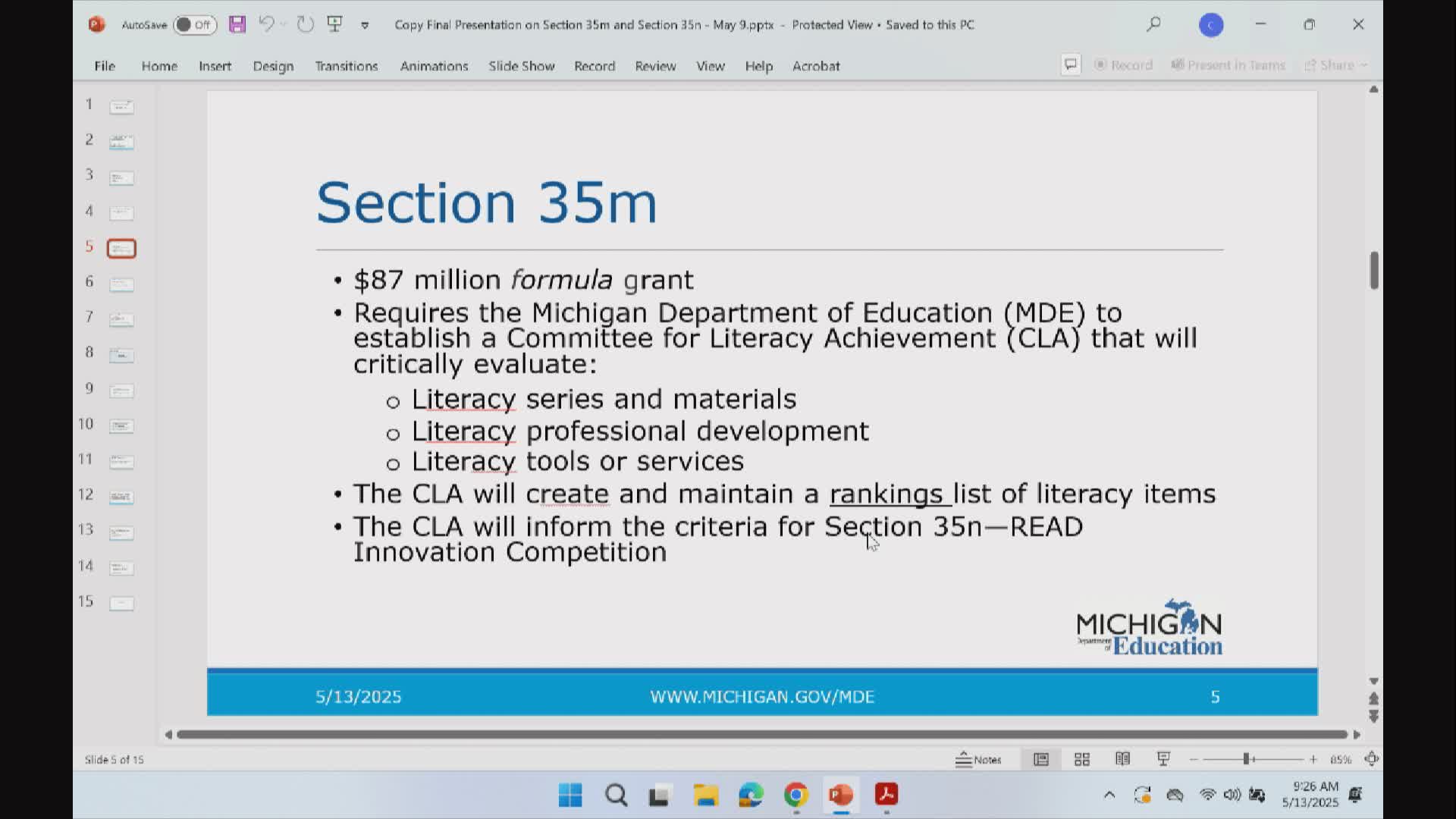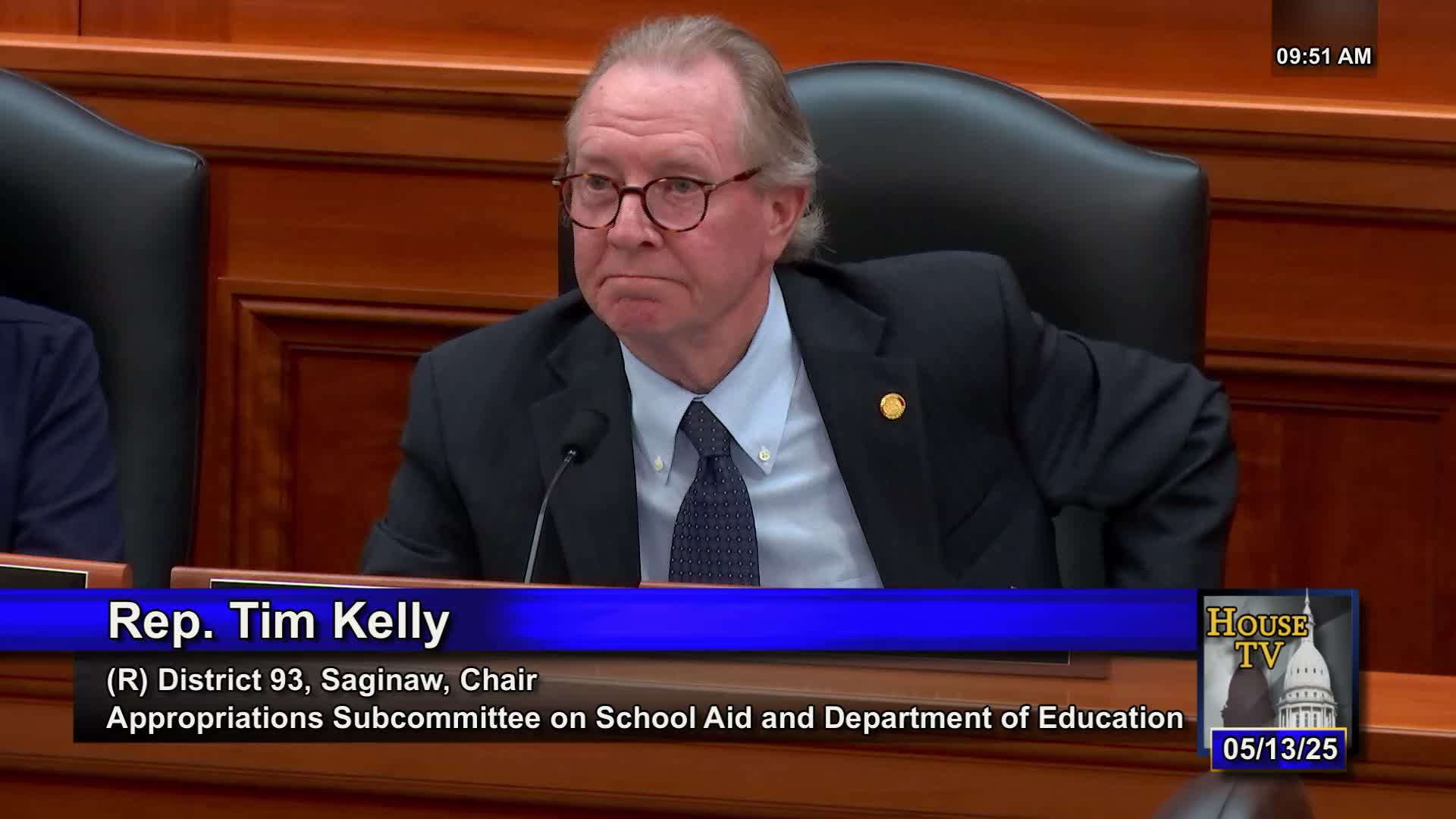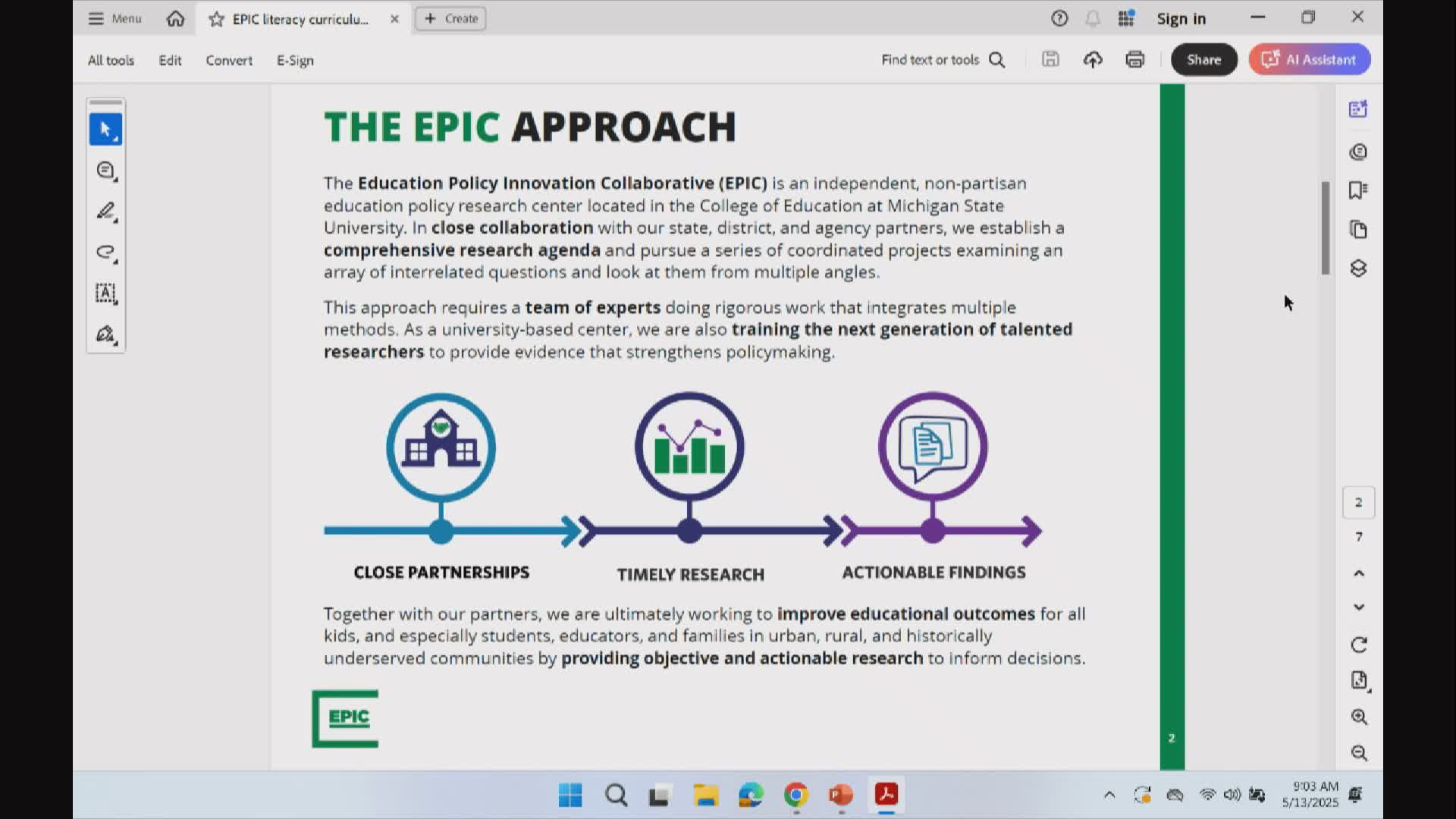Article not found
This article is no longer available. But don't worry—we've gathered other articles that discuss the same topic.

Michigan education officials outline $87 million formula grant, $10 million literacy competition and vendor-ranking timeline

Institute for Multisensory Education tells subcommittee its Orton‑Gillingham training produced local gains and seeks inclusion on state vendor list

